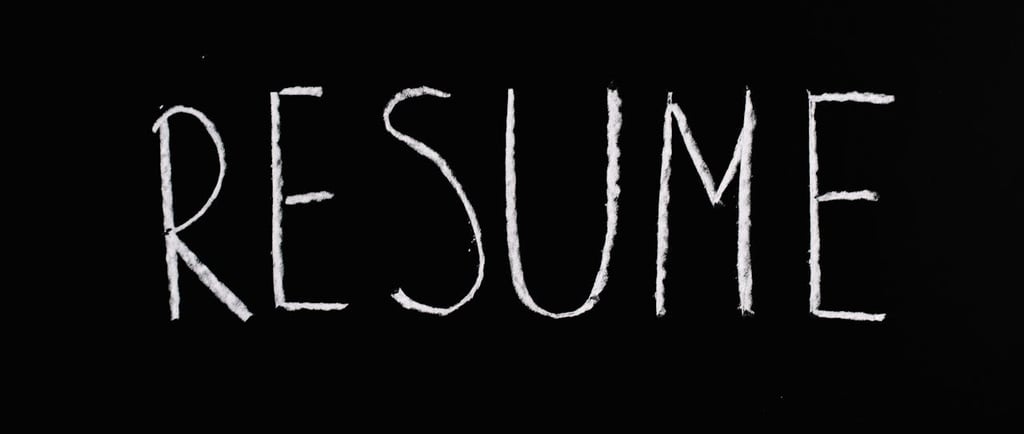The Role of AI in Resume Screening and Hiring: Transforming Recruitment in the Digital Age
TECHNOLOGY
2/18/20254 min read


Introduction
In today’s fast-paced digital world, artificial intelligence (AI) is revolutionizing the way businesses hire top talent. With thousands of applicants vying for job positions, recruiters face the daunting task of screening countless resumes to identify the best candidates. AI-driven recruitment tools streamline this process, saving time and effort while improving accuracy.
This blog post explores the role of AI in resume screening and hiring, shedding light on its benefits, challenges, ethical considerations, and the future of automated recruitment.
Understanding AI-Powered Resume Screening
AI-powered resume screening is the use of artificial intelligence, machine learning (ML), and natural language processing (NLP) to analyze job applications and identify suitable candidates based on predefined criteria. These systems evaluate resumes, rank applicants, and even predict a candidate's likelihood of success in a role.
How AI Resume Screening Works
Parsing Resumes: AI tools extract key information such as work experience, education, skills, and certifications.
Keyword Matching: The system matches candidate qualifications with job descriptions using NLP.
Scoring and Ranking: AI assigns scores to resumes based on relevance, experience, and required skills.
Bias Mitigation: Advanced AI models attempt to minimize unconscious bias by focusing on skills and qualifications rather than personal details like age, gender, or ethnicity.
Predictive Analysis: Some AI tools assess behavioral traits and predict cultural fit based on resume data.
Benefits of AI in Resume Screening and Hiring
1. Increased Efficiency
Traditional hiring processes can take weeks, with recruiters spending hours manually reviewing resumes. AI-powered tools can scan thousands of resumes within seconds, significantly reducing time-to-hire.
2. Improved Accuracy and Consistency
AI eliminates human errors and subjectivity in resume screening. It ensures a consistent evaluation of applicants based on predetermined criteria.
3. Reduced Hiring Bias
AI can help minimize unconscious bias in hiring by focusing on merit-based factors rather than demographic characteristics. However, the effectiveness depends on the data used to train the AI models.
4. Enhanced Candidate Experience
By automating initial screenings and responses, AI ensures candidates receive prompt updates about their application status, improving overall candidate experience.
5. Cost Savings
AI reduces the need for extensive HR manpower, lowering recruitment costs. Companies can allocate resources to other critical areas such as employee training and development.
6. Data-Driven Hiring Decisions
AI systems analyze past hiring patterns and candidate performance to provide insights that help recruiters make informed decisions.
Challenges and Limitations of AI in Hiring
1. Risk of Bias in Algorithms
If AI models are trained on biased datasets, they can perpetuate existing hiring biases instead of eliminating them.
2. Over-Reliance on Keywords
Many AI screening tools prioritize keyword matching, which can lead to the exclusion of qualified candidates who do not use specific terms in their resumes.
3. Lack of Human Touch
While AI enhances efficiency, human intuition and judgment remain crucial in assessing soft skills, cultural fit, and potential.
4. Data Privacy Concerns
AI recruitment tools collect and process vast amounts of personal data, raising concerns about data security and compliance with privacy regulations such as GDPR and CCPA.
5. Potential for False Negatives
AI may overlook candidates with unconventional backgrounds or non-traditional career paths, resulting in missed opportunities for hiring exceptional talent.
AI-Powered Hiring Tools and Their Capabilities
Several AI-driven recruitment tools are transforming hiring processes:
Applicant Tracking Systems (ATS) - Platforms like Greenhouse and Workday use AI to filter and rank candidates.
Chatbots - AI-powered chatbots (e.g., Paradox’s Olivia) engage with candidates, answer queries, and schedule interviews.
Video Interview Analysis - Tools like HireVue assess candidates’ facial expressions, speech patterns, and responses.
Skill Assessment Platforms - AI-driven platforms (e.g., HackerRank, Codility) evaluate technical skills through coding tests and real-world problem-solving tasks.
Future Trends in AI-Powered Recruitment
AI-Powered Predictive Hiring - AI will continue to refine predictive analytics to assess a candidate’s likelihood of long-term success.
AI and Emotional Intelligence - Future AI systems will integrate emotional intelligence metrics to assess candidates’ interpersonal skills.
Greater Personalization - AI will help tailor job recommendations based on individual profiles and career aspirations.
Voice and Sentiment Analysis - Advanced AI will analyze tone, confidence, and enthusiasm in candidate interactions.
Integration with HR Analytics - AI will play a bigger role in workforce planning, employee retention, and talent management.
Best Practices for Using AI in Hiring
Use AI as a Support Tool, Not a Replacement - AI should assist recruiters, not replace human judgment.
Continuously Train and Improve AI Models - Regularly update AI models to eliminate biases and improve accuracy.
Ensure Transparency and Fairness - Companies should disclose the use of AI in hiring and ensure compliance with legal and ethical standards.
Combine AI with Human Oversight - Final hiring decisions should involve a human recruiter to assess a candidate’s soft skills and cultural fit.
Monitor and Audit AI Performance - Regularly audit AI systems to ensure they are working fairly and effectively.
Conclusion
AI in resume screening and hiring has transformed recruitment by increasing efficiency, reducing bias, and enabling data-driven hiring decisions. However, AI is not without its challenges, including biases in algorithms and data privacy concerns. The key to successful AI-driven recruitment lies in balancing automation with human judgment to ensure a fair and effective hiring process.
As AI continues to evolve, organizations must adopt best practices to leverage its benefits while addressing ethical concerns. The future of hiring will likely see an even greater integration of AI, making recruitment smarter, faster, and more precise than ever before.
Disclaimer:
This blog post is for informational purposes only. The use of AI in recruitment should comply with applicable legal and ethical guidelines. Employers should ensure that AI tools are used responsibly and in conjunction with human oversight. The author is not responsible for any decisions made based on the information provided in this post.
